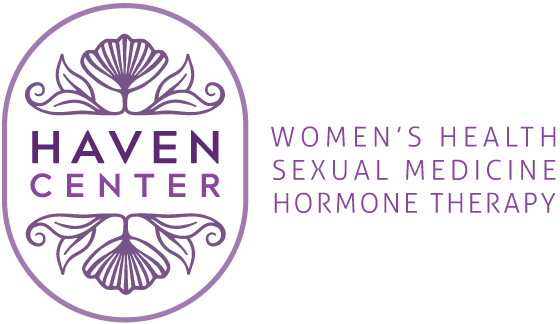We have been discussing neurodivergence and Gynecology- specifically looking at ADHD as well as the autism spectrum disorders in terms of hormonal functioning sexual functioning basic Gynecology things kind of everything that’s in there now obviously the preamble to this video is that there is not a lot of data out there about these conditions and the specific topic you know in terms of sexual medicine for example I mean the you know the whole specialty is honestly kind of new-ish and you know these things represent the the there be dragons kind of you know aspect of the map of what’s going on with with sexual medicine so there’s lots of stuff coming down the pike there’s but there’s not a lot of of information to to pull data statistics from.
The idea of neurodivergency or neurodifferential processes comes from the thought that patients who have these types of conditions are interpreting data in a different way than the averagel person and whether that means that the neurons in the brain are firing differently whether it means that they are kind of interpreting you know the input of of stimulation differently whatever it may be it’s considered kind of a Divergent way of of dealing with this input of data and so when you look at that there is a huge spectrum of this and and obviously you know we’re just talking about two different things today, but even within those two different areas there’s lots of degrees there too
There’s so muchdata to be found kind of in this this sub-area of of mental health and medical health that is really unique and interesting.
ADHD or attention deficit hyperactivity disorder has gone through a lot of different names for the condition. For a long time this was just thought to be people that couldn’t sit still – maybe they had a hard time concentrating, maybe they were fidgeters… typically the kids that are ‘bouncing Off the Wall’, and there wasn’t a lot of thought put into it.
Times have changed- we have learned a lot more about the diagnosis… we’ve learned that you know there’s a broad variety of different treatments for patients with these conditions everything from medication, to counseling, dietary control- a whole slew of stuff- so once again times change and so do treatments and diagnoses.
From a gynecologic standpoint or from a hormonal standpoint what goes on is that you have episodes or periods of high amounts of hormonal fluctuations- and this goes back to one of the less understood characteristics of estrogen where it acts almost a neuroprotective type hormone. It’s soothing to the neurons to the activity that’s going on there and so in times when estrogen levels vary wildly you can see manifestations or exacerbations of this condition so during puberty, postpartum and menopause are the three main times in an ovary-owning person’s life when they may notice exacerbations of the symptoms.
With puberty, you have big ups and downs- obviously postpartum with pregnancy you’ve had very high levels of estrogens and the body and then they collapse and then with menopause obviously things are taking a downward term too. Those low levels of estrogen make the neurons act more friable and erratic and so you have more prevalence of the symptoms where patients feel like they can’t concentrate, they can’t remember things, they have brain fog, they feel like they can’t sit still, they don’t rest well at night, etc…
Patients with ADHD in general have intrinsic dopamine which is a neurotransmitter that produces less endogenous dopamine being produced and so what that means is that the patient has to get those dopamine hits from external stimuli, so instead of being able to say, “oh this is really interesting I’m going to keep focused” instead it, “this is now starting to get boring oh look that’s a pretty light oh that’s a squirrel!” whatever it may be.
From a hormonal standpoint testosterone has dopaminergic effects and so testosterone levels go up. Those intrinsic dopamine levels may be kind of higher or those dopamine receptors are getting plugged more well once again in these periods of hormonal fluctuation or hormonal decline testosterone is going to be going down as well because remember the ovaries are the primary producers of testosterone in the body and so if gonadal function starts to decline then you will see those testosterone levels start to go down too.
So what does this mean in terms of sexual functioning?
Well we know that patients with ADHD a lot of times have a higher rate of sexual issues typically you may see that patients have a harder time with arousal and then with orgasm as well if you have a hard time kind of staying focused while you are doing sexual acts, you may find that you lose a little bit of enjoyment with them that you have a hard time maintaining that aroused state. You may find that you have a hard time achieving orgasm as well. A Common treatment for orgasmic dysfunction in this case is the use of medications for ADHD. Adderall is is documented for that. We also sometimes use Concerta or Ritalin, but basically the thought is that the patient then can focus more on what’s going on at hand and so then they have an easier time achieving that level of sexual satisfaction that they want to see from a hormonal standpoint
If you have a a higher rate of ADHD because of lower testosterone levels replacing testosterone may actually help not only with sexual function there but also the ADHD type symptoms.
I’m not saying that everyone who has ADHD needs to be on testosterone but it’s something to consider if you have both of those issues – your sex drive is lower and you deal with ADHD.

